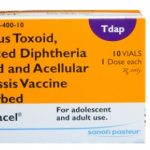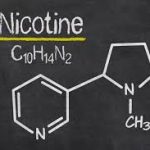Fall is Upon Us – What does this Mean for Covid-19 in the US and Abroad?
Officials had hoped that the number of coronavirus cases would decline over the summer; since case numbers did not drop, many health professionals are worried that case numbers will spike across the United States and in other nations. In fact, the director of the Centers for Disease Control and Prevention (CDC) warned that country could be facing “the worst fall, from a public health perspective, we’ve ever had.”

There were more than 22,526,000 confirmed cases of COVID-19 worldwide as of August 20, 2020, according to Johns Hopkins University, and 5,567,955 of those cases were in the United States. With vaccine still months away, a number of factors could affect whether the number of cases will increase or decrease into autumn.
On August 13, 2020, the CDC predicted that the number of new cases could decrease into early September. The CDC used several models to make this prediction; many of the models base their assumptions on whether current interventions, such as social distancing, will continue into the fall. The CDC has not yet offered a prediction for the number of COVID-19 cases for autumn, but the federal agency does offer a reminder that the second and more deadly wave of the 1918 pandemic occurred in the fall.
Factors that could affect COVID-19 cases in the US and abroad
The rise or fall of COVID-19 cases in autumn will depend on a number of factors, including the onset of flu season, the use of social distancing and facemasks, the proportion of students returning to in-person classes rather than distance learning, the return to amateur, college and professional sports, and the development of a vaccine.

Unless cases drop dramatically in the next few weeks, the coronavirus outbreak will likely coincide with the flu season, which means the number of sick people could overwhelm an already-stressed healthcare system. Flu season typically starts in October and worsens through January and February. While flu vaccinations could help reduce the burden on healthcare systems, only about 45 percent of American adults received a flu vaccine during last year’s during the 2018–19 flu season, according to the CDC.
Mask wearing is common and culturally acceptable in many parts of the world, particularly in East Asia, but not so in the United States. About 63 percent of people in Japan wore masks during the pandemic, for example, but a July Gallup poll found that only 44 percent of American adults said they “always” wear a mask when outside their homes.
Opening Schools During Covid-19 Pandemic
Opening schools poses a challenge in the US and abroad – while education is essential, in-person learning could cause a spike in infection rates. During the first few months of the pandemic, children seemed to have a much lower infection rate than did adults, but a recent collaborative report by the American Academy of Pediatrics and the Children’s Hospital Association showed that there was a 24 percent increase in child cases between July 30th and August 13th.

Europe’s flattened curve and lower infections rates tempted officials to open schools, but it has not gone as planned. All of Germany’s northeastern state of Mecklenburg-Western Pomerania’s schools opened at the beginning of August, for example, but two schools shut down at the end of the first week infections; the use of masks in schools is preferred but not mandatory.
Schools never closed in Sweden and administrators never major adjustments to class size, lunch policies, or recess rules. This would have been a perfect opportunity to study schools’ role in the spread of the virus; unfortunately, officials never tracked infections among schoolchildren, even when outbreaks led to the closure of individual schools or when staff members died of coronavirus.
Fall Sports During The Covid-19 Pandemic
Fall sports provide ample opportunities for transmission, in that most sports involve close contact between players and the physical exertion associated with sports make mask-wearing difficult. To reduce the risk of transmission, many US high schools are canceling or rescheduling fall sports programs, but Florida and several other states intend to resume as planned. Guidance from the National Federation of State High School Associations (NFHS) may help inform decisions about reopening athletic activities in schools while keeping transmission rates low.

The NFL and a number of professional sports teams plan to start their regular seasons, but with some adjustments to lower risk of transmission, such as frequent testing and phased ramp-up to the regular season. The protocols put in place by the NFL, such as daily testing, banning fans at camp and canceling preseason games, seem to be holding for now – that may change as the season opens, however.
It will be difficult to predict the effects of reopening schools and resuming sports will have on the number of COVID-19 infections or deaths, especially in the absence of social distancing, masks, and a vaccine. In the next installment, we’ll take a look at how the number of COVID-19 cases changed over the fall season and predict what will happen with the approach of winter.
FRANK MAGLIOCHETTI
Frank Magliochetti owes his professional success to his expertise in two areas: medicine and finance. After obtaining a BS in pharmacy from Northeastern University, he stayed on to enroll in the Masters of Toxicology program. He later specialized in corporate finance, receiving an MBA from The Sawyer School of Business at Suffolk University. His educational background includes completion of the Advanced Management Program at Harvard Business School and the General Management Program at Stanford Business School. Frank Magliochetti has held senior positions at Baxter International, Kontron Instruments, Haemonetics Corporation, and Sandoz. Since 2000, he has been a managing partner at Parcae Capital, where he focuses on financial restructuring and interim management services for companies in the healthcare, media, and alternative energy industries. Last year, he was appointed chairman of the board at Grace Health Technology, a company providing an enterprise solution for the laboratory environment. Frank is also CEO of ClickStream, ClickStream’s business operations are focused on the development and implementation of WinQuik™, a free to play synchronized mobile app and digital gaming platform. The platform is designed to enable WinQuik™ users to have fun, interact and compete against each other in order to win real money and prizes. Twitter at @ClickstreamC and @WinQuikApp.

Frank was appointed Chairman and Chief Executive Officer at Designer Genomics International, Inc. The Company has accumulated a growing body of evidence that highlights a link between alterations in the immune and inflammatory systems and the development of chronic human disease. The Company is visionary and has established itself as a leader in the field of inflammatory and immune genetic DNA and RNA biomarkers that play a causative role in debilitating conditions, such as atherosclerosis/heart disease, diabetes, arthritis, inflammatory bowel disease, post-traumatic stress disorders (PTSD) and cancer.
A proprietary state-of-the art data mining bioinformatics program, called ‘cluster analysis’ will be used to measure disease development susceptibility with potential for earlier diagnosis and intervention. The company is developing a healthcare program based on its proprietary genetic panels that will allow people to be their own healthcare advocate and take an active role in their health status as well as longevity.

Managing Partner
Parcae Capital
www.parcaecapitalcorp.com
www.frankmagliochetti.com
SOURCES:
https://www.webmd.com/coronavirus-in-context/video/robert-redfield
https://www.cdc.gov/coronavirus/2019-ncov/cases-updates/forecasts-cases.html
https://github.com/cdcepi/COVID-19-Forecasts/blob/master/COVID-19_Forecast_Model_Descriptions.md#JHU
https://www.cdc.gov/flu/pandemic-resources/1918-commemoration/three-waves.htm
https://www.cdc.gov/flu/fluvaxview/coverage-1819estimates.htm
https://journals.plos.org/plosone/article?id=10.1371/journal.pone.0237691
https://news.gallup.com/poll/315590/americans-face-mask-usage-varies-greatly-demographics.aspx
https://www.cdc.gov/mmwr/volumes/69/wr/mm6932e3.htm
https://fortune.com/2020/08/10/covid-schools-reopening-class-children-coronavirus/
https://www.sciencemag.org/news/2020/05/how-sweden-wasted-rare-opportunity-study-coronavirus-schools
https://www.nfl.com/news/nfl-training-camp-amid-covid-19-pandemic-what-you-need-to-know









